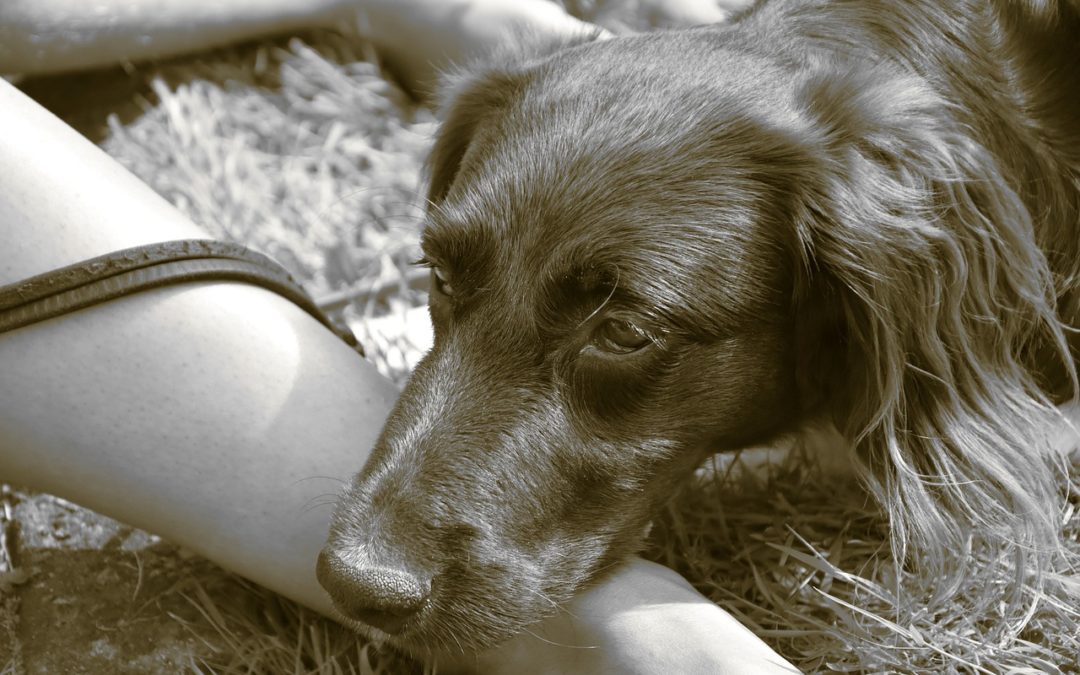“Bloat” may not sound like a serious condition, but in dogs, it can be fatal. It’s a condition that is not to be taken lightly. Thankfully, it’s fairly easy to identify. But what causes bloat in dogs? Our team at East Valley Animal Hospital in Gilbert is here to educate you about what causes bloat and what to look for so that you can save your dog’s life, if the need arises.
What is bloat?
The medical term for bloat is gastric dilatation-volvulus complex, or GDV. It’s nicknamed “bloat” because when affected, a dog’s stomach will expand—but not just a little bit. Bloat causes the stomach to stretch so far that it puts pressure on the other organs. As a result, blood flow stops, the heart slows down, and the stomach usually flips over. When it flips, the spleen and pancreas can also flip. The decreased blood flow sends the dog into shock, which will lead to death if untreated.
What causes bloat in dogs?
Predispositions to Bloat
Veterinarians have not yet identified a single cause for bloat. It can happen to any dog at any time. But there are several factors that are linked to bloat, including:
- Genes. A dog who is related to another dog who has had bloat is more likely to develop the condition.
- Size. Large dogs are more susceptible to bloat.
- Breed. Certain breeds, like Saint Bernards or Great Danes, have been proven to suffer bloat more often. Note, again, that most of the breeds are larger.
- Age. Older dogs are more prone to bloat. This is probably because their bodies are weaker, making them more vulnerable in general.
- Sex. Bloat happens to be more common in male dogs than in females.
Physical Behaviors that May Cause Bloat
Although there is not yet a single known cause for bloat, it seems to occur more often when a dog:
- Eats too quickly. A lot of dogs are fast eaters, but be careful; excessively fast eating is a risk.
- Is running around too soon after eating. This behavior often results in bloat. This may be because the food hasn’t been digested yet. It may also be because the stomach is being subjected to too much pressure after eating.
- Uses a raised bowl. An elevated food bowl increases the risk of too-fast eating, which can cause bloat.
- Only eats once a day. One large meal a day can lead to a very hungry dog. Dogs who are overly hungry eat too quickly, which can be a risk factor for bloat.
Symptoms of Bloat in Dogs
Bloat begins very abruptly and can be fatal within hours. If more than one of these symptoms begin right away, never ignore it. Bloat is a medical emergency that needs immediate surgical care.
- Retching is an indication that something is wrong with your dog. It can be a warning of several issues, bloat included. If your dog is trying to vomit, but nothing is coming up, bring him into the vet right away. Time is of the essence with bloat and it’s better to err on the side of caution.
- Lethargy/collapsing. Bloat causes shock, which means the blood pressure plummets. This is a life-threatening symptom.
- Bloated stomach. A markedly distended stomach is a warning sign.
- Drooling or dry-heaving may suggest abdominal discomfort.
- Pacing. You may notice your dog pacing due to discomfort or distress.
Emergency Veterinary Care in Gilbert
Bloat is a devastating condition and has taken too many dogs too early in their lives. That’s why it’s important we stay informed about the issues that afflict our dogs. Knowledge is power. If you suspect your dog is suffering from bloat, don’t waste any time! Call our team at East Valley Animal Hospital immediately so we can treat your dog to give him the best chances of survival. If it is outside of business hours, go to your nearest 24-hour emergency vet right away.
Images used under creative commons licence – commercial use (1/22/21). Image by Peggy Choucair on Pixabay.

